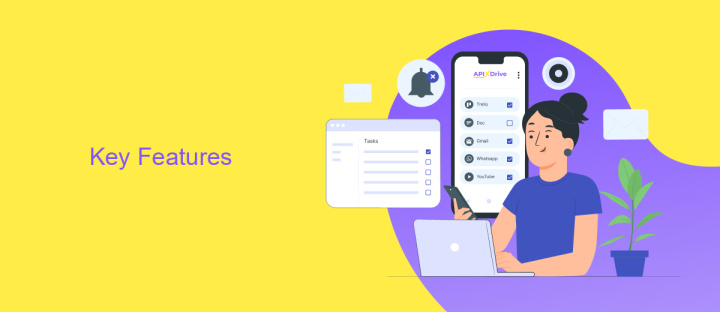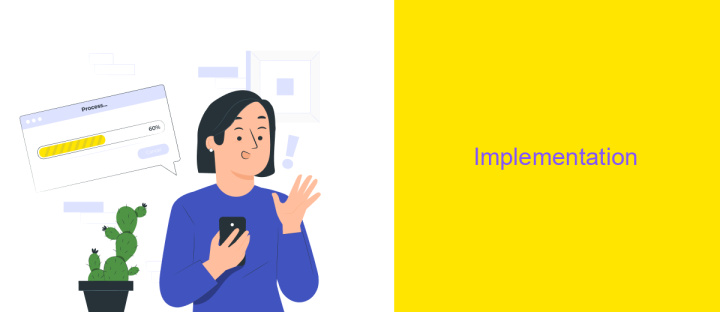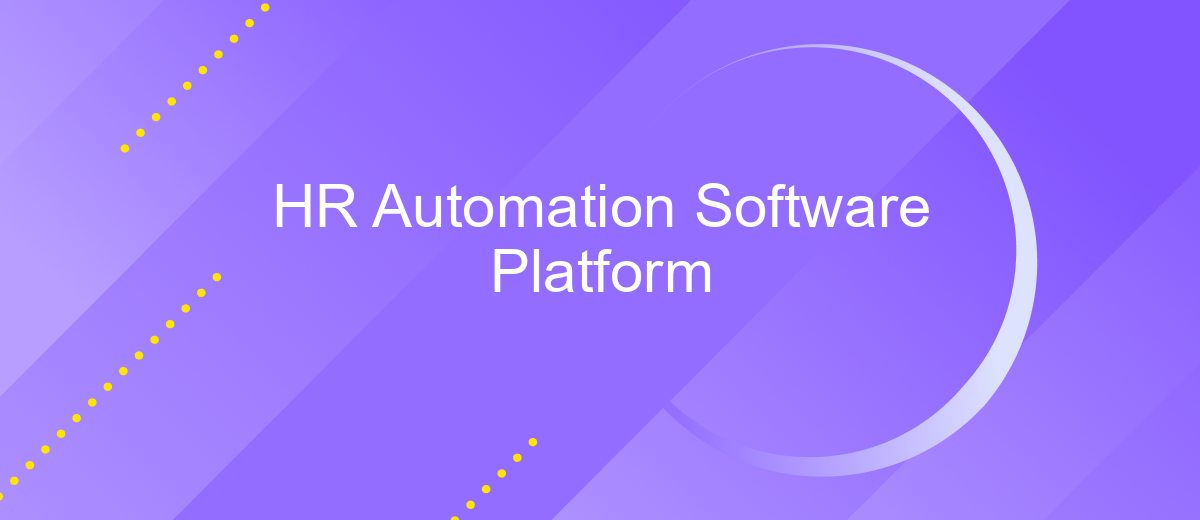HR Automation Software Platform
In today's fast-paced business environment, HR automation software platforms have become indispensable tools for organizations seeking to streamline their human resources processes. By automating repetitive tasks, these platforms not only enhance efficiency but also allow HR professionals to focus on strategic initiatives. From recruitment to performance management, HR automation is transforming the way companies manage their most valuable asset: their people.
Introduction
In the rapidly evolving business landscape, organizations are increasingly turning to HR automation software platforms to streamline their human resources processes. These platforms offer a comprehensive suite of tools designed to enhance efficiency, reduce manual workloads, and improve overall productivity. By automating routine tasks, HR professionals can focus on more strategic initiatives, such as talent development and employee engagement, ultimately contributing to the organization’s success.
- Automated recruitment processes that save time and reduce hiring biases.
- Efficient management of employee data and records, ensuring accuracy and compliance.
- Streamlined onboarding and training programs that enhance new hire integration.
- Performance management tools that provide real-time feedback and development opportunities.
- Advanced analytics that offer insights into workforce trends and decision-making.
As businesses continue to adapt to technological advancements, the adoption of HR automation software platforms becomes imperative. These platforms not only facilitate seamless HR operations but also empower organizations to make data-driven decisions. By leveraging the capabilities of HR automation, companies can create a more agile and responsive HR function, aligning human resources with broader business objectives and fostering a culture of continuous improvement.
Key Features

HR automation software platforms are designed to streamline and optimize human resource processes, offering a range of key features to enhance efficiency. One of the standout features is automated recruitment, which simplifies the hiring process by using AI-driven algorithms to screen resumes, schedule interviews, and even conduct initial assessments. This not only saves time but also ensures a more objective candidate evaluation. Additionally, these platforms offer employee self-service portals, allowing staff to manage their personal information, benefits, and leave requests independently, reducing the administrative burden on HR departments.
Integration capabilities are another crucial aspect, enabling seamless connectivity with existing systems. Platforms like ApiX-Drive facilitate these integrations, allowing HR software to communicate effortlessly with other business tools and databases. This ensures real-time data synchronization and enhances decision-making processes. Furthermore, advanced analytics and reporting features provide valuable insights into workforce trends, helping organizations make informed strategic decisions. With robust security measures in place, these platforms ensure that sensitive employee data is protected, maintaining compliance with industry standards and regulations.
Benefits

Implementing an HR automation software platform can significantly transform the way businesses manage their human resources. By streamlining repetitive tasks and enhancing data accuracy, these platforms free up valuable time for HR professionals to focus on strategic initiatives. Automation tools also improve compliance by ensuring that all necessary documentation and procedures are consistently followed.
1. Increased Efficiency: Automation reduces the time spent on manual tasks, allowing HR teams to focus on more strategic activities.
2. Enhanced Accuracy: By minimizing human error, automated systems ensure that data is more reliable and up-to-date.
3. Cost Savings: Reducing the need for extensive manual labor leads to decreased operational costs over time.
4. Improved Compliance: Automation ensures that all HR processes adhere to legal and regulatory requirements consistently.
5. Better Employee Experience: Streamlined processes lead to faster response times and improved service for employees.
Overall, adopting an HR automation software platform not only optimizes operational efficiency but also enhances the overall employee experience. By automating routine tasks, organizations can ensure better compliance and data accuracy, leading to more informed decision-making and a more agile HR function. This shift allows HR professionals to become strategic partners in driving business growth and innovation.
Implementation

Implementing an HR automation software platform requires a strategic approach to ensure seamless integration and optimal performance. Begin by assessing your current HR processes to identify areas that would benefit most from automation. This will help in selecting a platform that aligns with your organizational goals and addresses specific needs.
Once a suitable platform is chosen, develop a detailed implementation plan. This should include timelines, resource allocation, and a risk management strategy. Involve key stakeholders from the HR, IT, and management teams to foster collaboration and ensure that all perspectives are considered during the implementation process.
- Conduct a thorough needs analysis to identify key functionalities required.
- Engage with vendors to understand platform capabilities and limitations.
- Plan for data migration and ensure data integrity throughout the process.
- Provide comprehensive training for HR staff to maximize platform utilization.
- Establish metrics to evaluate the platform's impact on HR efficiency and effectiveness.
Continuous monitoring and feedback collection are crucial post-implementation. Regularly review the platform's performance and make necessary adjustments to address any emerging challenges. This iterative process will help in achieving long-term success and scalability of the HR automation solution.


Conclusion
In conclusion, HR automation software platforms represent a transformative step forward for organizations seeking to optimize their human resource management processes. By streamlining repetitive tasks, enhancing data accuracy, and fostering better decision-making, these platforms empower HR teams to focus on strategic initiatives that drive business growth. The integration of artificial intelligence and machine learning further enhances the capabilities of HR software, providing predictive analytics and personalized employee experiences that align with modern workforce expectations.
Moreover, the ability to seamlessly integrate various HR tools and services is crucial for maximizing the benefits of automation. Solutions like ApiX-Drive facilitate these integrations, allowing businesses to connect disparate systems effortlessly and ensure a cohesive data flow across platforms. This not only improves operational efficiency but also enhances the overall employee experience by providing a unified interface for all HR-related activities. As organizations continue to evolve, embracing HR automation and efficient integration services will be key to maintaining a competitive edge and fostering a dynamic, engaged workforce.
FAQ
What is HR automation software, and how does it benefit businesses?
How can HR automation software improve employee onboarding?
Is it possible to integrate HR automation software with existing systems?
What security measures are typically in place for HR automation software?
Can HR automation software be customized to fit specific business needs?
Time is the most valuable resource for business today. Almost half of it is wasted on routine tasks. Your employees are constantly forced to perform monotonous tasks that are difficult to classify as important and specialized. You can leave everything as it is by hiring additional employees, or you can automate most of the business processes using the ApiX-Drive online connector to get rid of unnecessary time and money expenses once and for all. The choice is yours!

